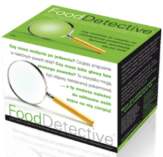Food intolerance test
Zamów test
PROBLEM NIETOLERANCJI POKARMOWYCH
drDabrowska

FoodDetective™
Podstawowe badanie w kierunku nietolerancji pokarmowej badające 59 produktów (w 46 grupach). Badanie jest oparte o standardową metodę ELISA pozwala na czułe i swoiste wykrycie we krwi przeciwciał IgG dla składników pokarmowych. Wynik badania jest przedstawiony w postaci jakościowej (dodatni lub ujemny bez podawania dokładnego stężenia przeciwciał). Panel jest zalecany osobom, które borykają się z 1 lub 2 przewlekłymi objawami. Lista produktów Gdzie wykonać badanie? Wynik Zamów

FoodPrint® 80+
Rozszerzone badanie w kierunku nietolerancji pokarmowej badające ponad 80 produktów (każdy osobno). Badanie jest oparte o mikromacierzową metodę ELISA i pozwala na wykrycie we krwi z bardzo wysoką czułością przeciwciał IgG dla składników pokarmowych. Wynik badania jest przedstawiony w postaci ilościowej (dokładne stężenie przeciwciał IgG). Polecany osobom z więcej niż 2 przewlekłymi objawami i/lub cierpiącymi na choroby o podłożu immunozależnym. Lista produktów Gdzie wykonać badanie? Wynik Zamów

FoodPrint® 120+
Rozszerzone badanie w kierunku nietolerancji pokarmowej badające ponad 120 produktów (każdy osobno). Badanie jest oparte o mikromacierzową metodę ELISA i pozwala na wykrycie we krwi z bardzo wysoką czułością przeciwciał IgG dla składników pokarmowych. Wynik badania jest przedstawiony w postaci ilościowej (dokładne stężenie przeciwciał IgG). Polecany osobom z więcej niż 2 przewlekłymi objawami i/lub cierpiącymi na choroby o podłożu immunozależnym. Lista produktów Gdzie wykonać badanie? Wynik Zamów

FoodPrint® 160+ Wegetariański
Rozszerzone badanie w kierunku nietolerancji pokarmowej badające ponad 160 produktów (każdy osobno). Badanie jest oparte o mikromacierzową metodę ELISA i pozwala na wykrycie we krwi z bardzo wysoką czułością przeciwciał IgG dla składników pokarmowych. Wynik badania jest przedstawiony w postaci ilościowej (dokładne stężenie przeciwciał IgG). Polecany osobom z więcej niż 2 przewlekłymi objawami i/lub cierpiącymi na choroby o podłożu immunozależnym. Badanie jest dedykowane dla grupy osób nie spożywających mięsa, ryb i owoców morza. Lista produktów Gdzie wykonać badanie? Wynik Zamów

FoodPrint® 220+
Najbardziej kompleksowe badanie w kierunku nietolerancji pokarmowej badające ponad 200 produktów (każdy osobno). Badanie jest oparte o mikromacierzową metodę ELISA i pozwala na wykrycie we krwi z bardzo wysoką czułością przeciwciał IgG dla składników pokarmowych. Wynik badania jest przedstawiony w postaci ilościowej (dokładne stężenie przeciwciał IgG). Polecany osobom z więcej niż 2 przewlekłymi objawami i/lub cierpiącymi na choroby o podłożu immunozależnym. Badanie pozwala na skomponowanie kompleksowych zaleceń żywieniowych opartych o indywidualny profil nietolerancji pokarmowej. Lista produktów Gdzie wykonać badanie? Wynik Zamów
Porównanie właściwości paneli
 | |
|---|---|
Badanie spełnia standardy wyrobów medycznych do diagnostyki in vitro (IVDD98/79EC) | Badanie spełnia standardy wyrobów medycznych do diagnostyki in vitro (IVDD98/79EC) |
Badanie jest wykonywane w medycznym laboratorium diagnostycznym Cambridge Diagnostics (nr laboratorium 3558) i autoryzowane diagnostów laboratoryjnych | Badanie jest wykonywane w medycznym laboratorium diagnostycznym Cambridge Diagnostics (nr laboratorium 3558) i autoryzowane diagnostów laboratoryjnych |
Badanie wykonywane w nowoczesnej technologii mikromacierzową ELISA, charakteryzującej się bardzo wysoką czułością i swoistością | Badanie wykonywane w standardowej technologii ELISA, charakteryzującej się wysoką czułością i swoistością |
Wynik ilościowy badania (dokładne stężenie przeciwciał IgG) jest bardzo czytelny i przedstawiony w formie graficznej z podziałem na stopnie reaktywności poszczególnych pokarmów | Wynik jakościowy badania (dodatni lub ujemny bez podawania dokładnego stężenia przeciwciał IgG) przedstawiony w formie listy produktów |
Dobrze wyselekcjonowane panele badanych produktów (wszystkie produkty są badane osobno) | Podstawowy panel najczęściej spożywanych produktów 59 produktów (w 46 grupach) |
Możliwość wykluczenia reakcji krzyżowych pomiędzy pokarmami | Brak możliwości wykluczenia reakcji krzyżowych |
